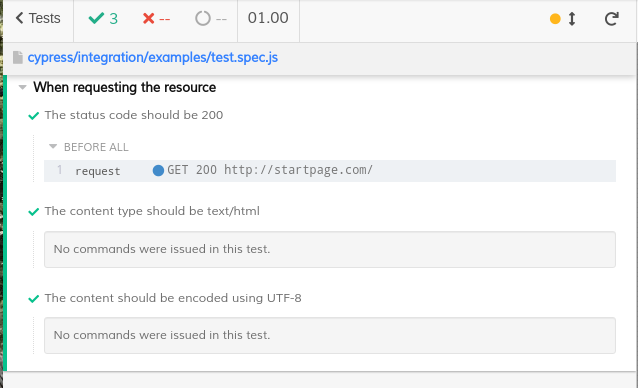Since aliases are cleared after each test (it) when using Cypress, it seems subsequent tests needs to execute the same request again and again, while I would prefer to get it only once. This can be verified by replacing beforeEach with before, resulting in the second and third test to fail. Of course all assertions could be placed in a single it, I want each assertion to be reported separately however. Why does Cypress need to reload the resource for each test and how can this be avoided?
/// <reference types="cypress" />
describe('When requesting the resource', () => {
beforeEach(() => {
cy.request('http://startpage.com/').as('response');
});
it('The status code should be 200', () => {
cy.get('@response').its('status').should('be.ok');
});
it('The content type should be text/html', () => {
cy.get('@response').its('headers.content-type').should('include', 'text/html');
});
it('The content should be encoded using UTF-8', () => {
cy.get('@response').its('headers.content-type').should('include', 'charset=utf-8');
});
});
